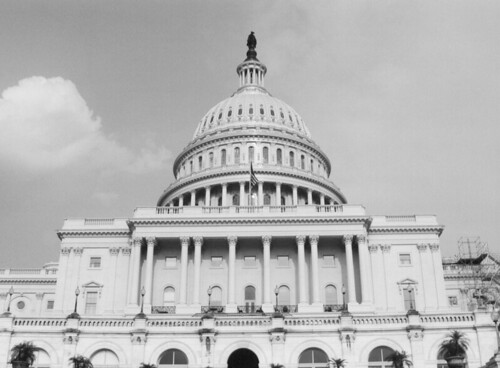
Anyone following the news knows that panels of scientific experts have suggested that women without extraordinary risk factors don't need to begin universal breast and cervical cancer screening beginning as young or repeated as frequently as has been considered medical best-practice until recently.
Well actually, that's probably not how you've heard this news: you are much more likely to have heard that the government and/or mean doctors want to deny needed cancer care to vulnerable women. Or perhaps you've heard that women worried about breast and/or cervical cancer are irrational, anti-scientific hysterics who won't listen to well-researched reason.
We're having a mammogram/pap smear panic here, not enhancing the understanding of any of us.
I guess the heat on these subjects shouldn't be too surprising -- we're dealing with life and death questions. But it might help if we could contextualize our reactions a little.
For starters, in the lifetimes of quite a few of us, it was not at all assumed by most people that more doctoring could extend lives. I think about my own mother, born in 1908, died in 1999. She never had either a pap smear or a mammogram in her life. She didn't hold much with medicine: in her understanding, you tried to take care of yourself (mostly through folk health practices), you lived your allotted time, and you died. You might go to a doctor if you were sick, but mostly the doctor reinforced the good health practices you already knew and comforted you.
Obviously, this is not how contemporary medicine works. Doctors have, in many instances, learned to do more good than harm in the last century. But it is worth remembering that helpful, life enhancing, medical intervention is a novelty. And some of the sense my mother had that there are limits to what medicine can do could be a corrective to excessive demands for unlimited extension of healthy life. Medicine still has limits.
One of the cultural reasons that current medicine does better than it used to is that in the middle of the last century, assertive women began demanding that we be considered just as much its proper subjects as men. It is probably hard to imagine today, but not that long ago much medical and drug research neglected to bother with studying the effects of practices and procedures on "non-standard" people -- that is, on women. Changing that didn't just happen; women demanded our inclusion. Concurrently, a lot more women became doctors, so it is now harder for medicine to leave us out altogether.
Beginning in the 1980s, the eruption of HIV-AIDS into the consciousness of the developed world also has had a huge impact on popular understandings of medical best practices. Here was a brand new, lethal disease that seemed to strike a despised but not entirely helpless population. It was not at all clear that the scientific establishment, or government health authorities, would devote resources and brain power to understanding and treating it. Who cared if some fags were dying? So a very determined and quite sophisticated patient advocacy infrastructure was built -- in the early years, gay HIV advocates were frequently ahead of the health authorities in their understanding of the disease. They dredged drug treatments out of cautious doctors years before these would have emerged without their insistent demands. The HIV-AIDS experience in which informed patients and advocates kicked the medical establishment into better practice became to some extent the paradigm of how we deal with threatening diseases.
No wonder recommendations from dispassionate scientific experts about life and death threats evoke lots of heat: too many of us have had lived experience over the last fifty years that the doctors don't really "get it" until we make them.
For myself, I'm willing to believe what the expert panels are telling us. The value of conventional medical practices should be validated by repeated studies. If they couldn't be scrutinized, we might still be treated with leeches. I'm also willing to believe more is not always better.
I do have to wonder though, do expert panels have any idea of the social context into which they drop their findings? I've written this post simply out of my memories and experience, but I think it hits elements of our muddled consciousness about these issues that are legitimate parts of our response. Somehow I have a guess that our scientific experts are afflicted with social tunnel vision, oblivious to how their recommendations might be received by the women whose lives will be changed by them. That's a problem.




















































